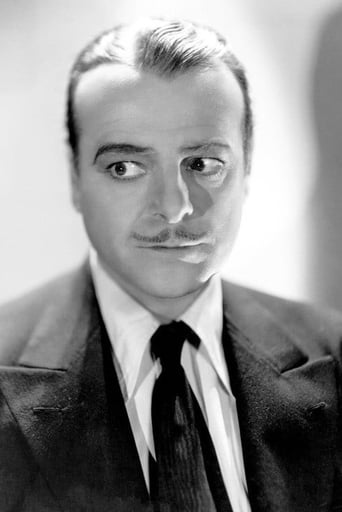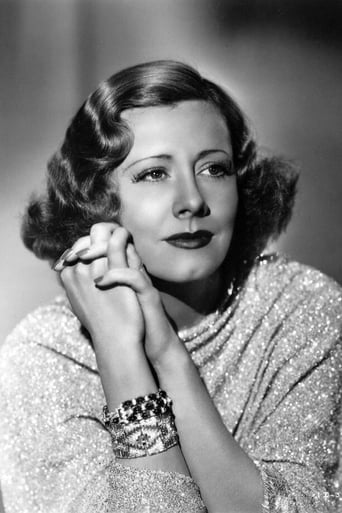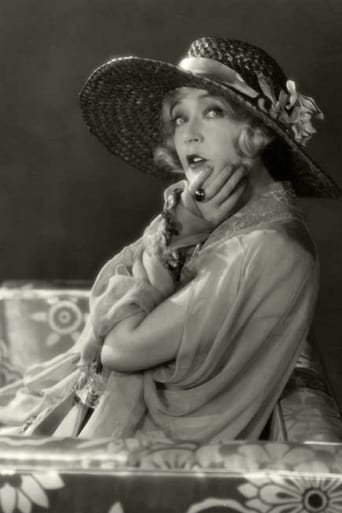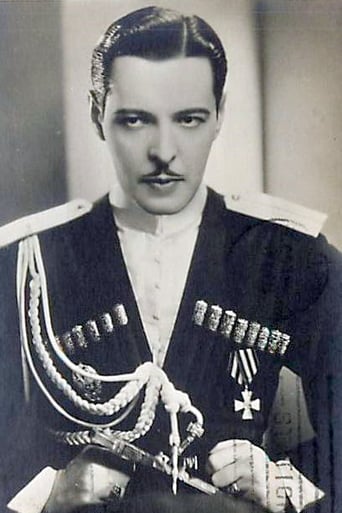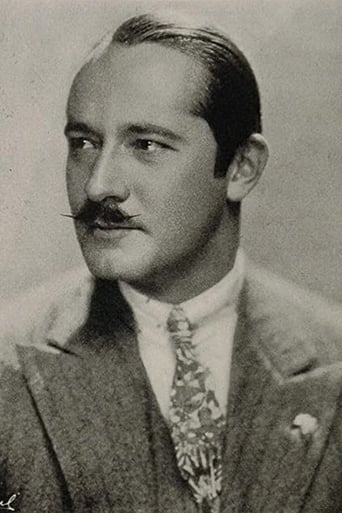VeteranLight
I don't have all the words right now but this film is a work of art.
Intcatinfo
A Masterpiece!
Humaira Grant
It’s not bad or unwatchable but despite the amplitude of the spectacle, the end result is underwhelming.
Logan
By the time the dramatic fireworks start popping off, each one feels earned.
Edgar Soberon Torchia
Besides the open way sex and social climbing are treated (among heterosexual characters) and the explicit references to marijuana and cocaine in the previous years to the Hays Code enforcement in American cinema, «Bachelor Apartment» is interesting for it was written by open leftist playwright John Howard Lawson, a Jewish- American who would become a member of the US Communist Party, president of the west wing of the Writers Guilds of America and one of the "Hollywood Ten" who were imprisoned and black-listed during the anti-communist pursuits of Republican U.S. Senator Joseph McCarthy in the early 1950s. However there is not much here to consider as progressive, daring or a menace to the status quo, apart from the female leading role, a working class woman whose dignity and self-respect (especially as played by Irene Dunne) set her apart from the other women in the movie. Lawson later stated that there was no adaptation of his script and it was shot as he had written it, so in the end the movie follows the formula of the romantic comedy, and reinforces the traditional gender and social roles of both men and women. So it is no wonder that Lawson decided to go South and learn a bit about social classes in 1934, after being accused by his fellow party members that he had "a lack of ideological and political commitment" and wrote "adolescent works that lacked moral fiber or clear ideas". But for its historical value, fast rhythm and a couple of enjoyable characterizations (by Mae Murray, a gentler version of Mae West, and Charles Coleman as the butler, with a curious scene full of innuendo in his exchange with a messenger) «Bachelor Apartment» is worth a look.
dougdoepke
It may be 1931, but there's no hint of an economic depression among the well-upholstered lounge lizards of Manhattan. It's pretty much a steady round of casual couplings and uncouplings among the urban sophisticates. Not much of a plot except for middle-aged Lothario (Sherman) slowly falling for nice girl Helene (Dunne). Movie's main interest is in its provocative pre-Code liberties—innuendoes fly fast, while some clinging gowns leave little to the imagination. It's a talky script with some clever lines, and if there's little action, at least director Sherman keeps things moving. The comedy is more occasional than sparkling, but does have its moments, even though Dunne surprisingly gets few laugh lines. All in all, it's a fairly entertaining antique with a good glimpse of bygone fashions.
edwagreen
Expert direction by Lowell Sherman. He acts up a storm as well as playboy, wanting to become more ethical in his life. This is especially so when his friend's wife tries more than just flirting with him. The wife, Mae Murray, steals the show here with her threats, laughter and qualities of a woman who just didn't know when she had it so good.Sherman lives on Park Avenue and has built up a business dealing with the market all by himself. On the other side of town, would-be-stenographer Irene Dunne lives with her selfish sister, the latter wanting to break into Broadway. When the latter is fooled by Sherman's butler, thinking that he's the wealthy playboy, the fun begins. Dunne meets the Sherman character and the wonderful coincidence is that she applies for the job at the company he heads.This is really a story of about how people feel about themselves. It has comical and dramatic overtones.
rsoonsa
John Howard Lawson, later one of the blacklisted Hollywood Ten, composed this screenplay which is ostensibly quite the reverse from his normal proletarian bent, but is actually deeply altered by wordsmith J. Walter Ruben to a suave and somewhat risqué (pre-Code) comedy. Fortunately, some sense of Lawson's customary concerns remains, and is dealt with nicely by Irene Dunne, co-starring with the elegant Lowell Sherman, who also directs with his usual flare in this tale of a Park Avenue man about town struggling with a raft of nubile and aggressive young creatures. An early sound film, it forms the first arrangement of what has become a basic cinema plot device, as we know it, that of the carefree unmarried man being chastened from his rollicking ways by exposure to feelings of romantic love. Cinematography by the brilliant Lee Tover is of particular value here and one should advert to the art direction of Max Ree, who garnered an Academy Award for his characteristic talent during this same year (1931) as a result of his work with CIMARRON. Although Mae Murray's flamboyance is transcendental, the acting is generally quite good, with a particularly strong and stage-accented performance from the lovely Dunne as an older sister attempting to shepherd a wayward sibling while standing her own ground against a playboy's blandishments. One of the final pieces of Sherman's tragically shortened directorial career, the film offers many admirable passages, none less so than the opening scene, with that eternal butler Charles Coleman patiently dealing with an importunate telephone and doorbell, setting the pace in a picture that never pushes too hard or tries too strenuously for its effects.
